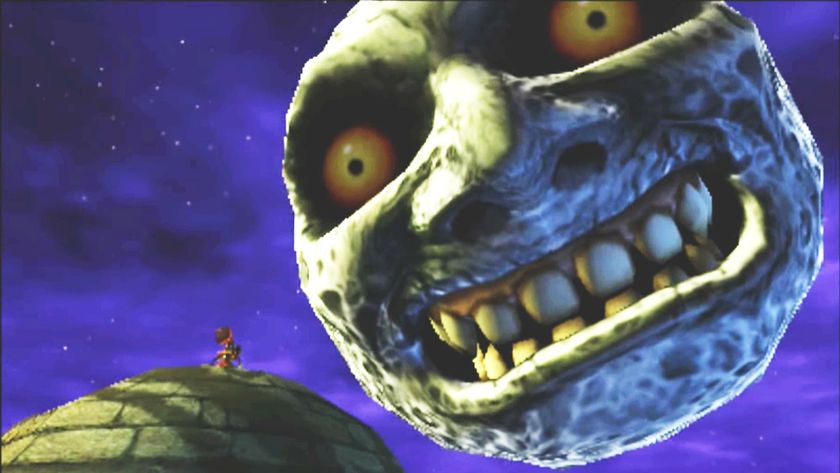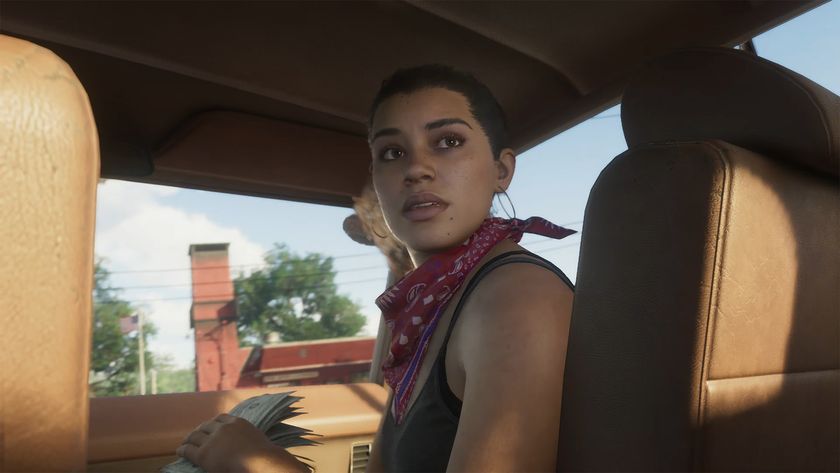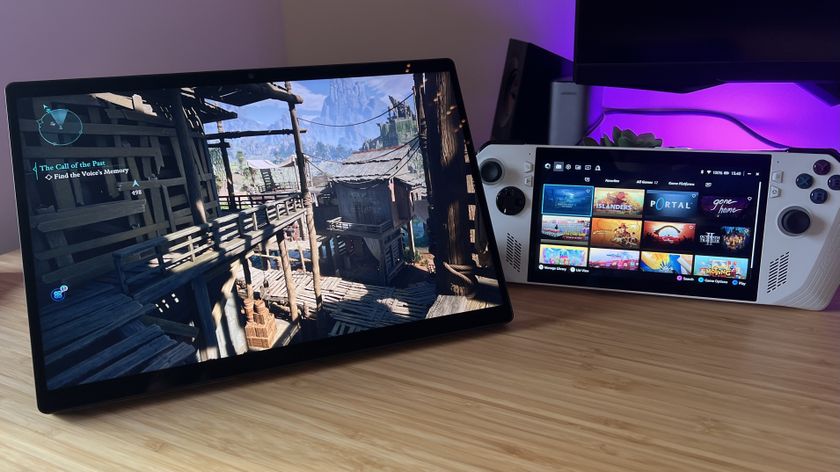The most accurate/inaccurate comic book games
Undead Batmen, demonic divorces, the sad truth of Aquaman and more within
Aquaman: Battle for Atlantis
The terribleness of this game and the overall lameness of Aquaman have been covered pretty extensively by the internet, and while I'd defend Aquaman the character - to a point - Aquaman the game is as horrible as they say. With rock-bottom production values, repetitive gameplay and some of the lamest box art ever, the game left me with a feeling of sad emptiness akin to what suicide victims must feel right before they jump off the ledge.
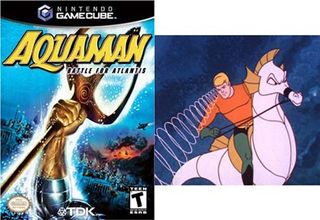
Above: Perhaps the box art was an improvement
Maybe King Arthur was left off the cover because in the game, he looked nothing like the Aquaman fans love - or tolerate, anyway. Instead he looked like the then-current ruler of the sea, with long hair, a beard, a gladiatorial non-shirt, and a hook for a hand. Aquaman has been missing an appendage ever since Aquaman Vol. 3, #2, when his fish-talking powers failed him and piranhas ate his left hand. He replaced it with a mechanized hook soon after, as all amputees wish they could.
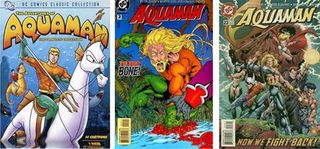
Above: How we ended up with the gritty, bearded Aquaman
On top of that, Atlantis looked much like its comic counterpart, and Battle for Atlantis had some of the supporting cast from the time, including his former sidekick Aqualad in his current incarnation, Tempest. Plus, the antagonist of this hideous misfire was Aquaman's half-brother, Ocean Master, sporting the look he's had since selling his soul to the demon Neuron back in 1995. The accuracy is worth recognition, and some could even say it stayed true to the very spirit of Aquaman adventures, in that it was dreadfully boring.
90s Arcade Games = Continuity Headaches
Obviously, arcade games of the early- to mid-‘90s lacked the depth required to be really true to the source. But most didn't even try, as this analysis of some of the brawlers and fighters of the time will prove.
Sign up to the 12DOVE Newsletter
Weekly digests, tales from the communities you love, and more
Spider-Man

This Sega-developed brawler was fun for its time, and featured many classic Spidey villains, but the three other characters left much to be desired. There were Green Arrow-wannabe Hawkeye and testy anti-hero Namor, both of whom were, at the time, casual acquaintances at best to Spidey. Rounding out the group was Black Cat, who incidentally had lost her powers and temporarily quit heroics in Amazing Spider-Man #343, right around the game's release. Coincidentally, the game's storyline of Dr. Doom taking New York via symbiotes was strikingly similar to the aforementioned Venom Bomb comic that inspired Web of Shadows.
X-Men
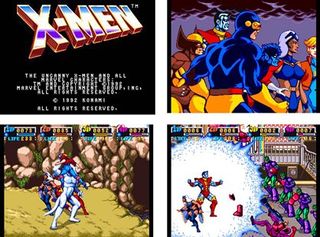
Most of the problems with this one stem from the source. Despite seemingly being based on the comics at the time, the roster and the look are actually taken from the failed, if well animated,X-Men cartoon pilot. This would explain why Juggernaut would team with the Brotherhood of Evil Mutants, why Kitty Pryde was so young and useless, and why the lame glam rocker/mutant Dazzler was with the team, as was Nightcrawler, who was on British X-team Excalibur at the time.
Captain America and the Avengers
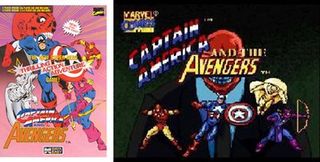
This one’s the exception to the rule, as this was pretty dang accurate. Captain America, Hawkeye, Vision and Iron Man were all Avengers members at the time, and Vision and Iron Man are wearing their then-current costumes. Add the game’s use of cameos by other current members and accurate representations of most of the enemies - Juggernaut was a bit off – and this one teaches us that the less popular the characters, the more accurate they can afford to be.
Justice League Task Force
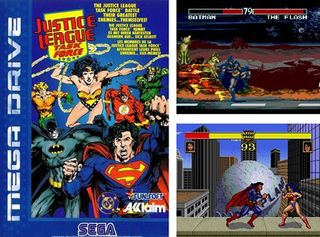
Made by Blizzard Entertainment(!) this Street Fighter wannabe never even made it to arcades, instead stinking up the consoles of the time. Looking at the cover, some might mistake it as being close to the comics, what with Superman’s "hip," post-resurrection long hair from 1993, and Green Arrow's faithfully lame costume. However, the actual mid-‘90s Justice League Task Force had almost none of these characters, instead being populated with D-listers Gypsy, Mystek, Maxima and Bronze Tiger. Now, if they had been in there, the game could only have been better, right?
Henry Gilbert is a former 12DOVE Editor, having spent seven years at the site helping to navigate our readers through the PS3 and Xbox 360 generation. Henry is now following another passion of his besides video games, working as the producer and podcast cohost of the popular Talking Simpsons and What a Cartoon podcasts.
Most Popular





